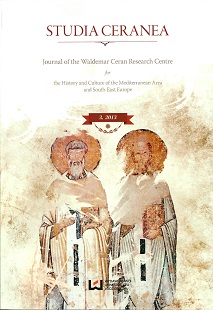Rice as a Foodstuff in Ancient and Byzantine Materia Medica
Rice as a Foodstuff in Ancient and Byzantine Materia Medica
Author(s): Zofia Rzeźnicka, Maciej Kokoszko, Krzysztof JagusiakSubject(s): History
Published by: Wydawnictwo Uniwersytetu Łódzkiego
Summary/Abstract: The present study discusses dietetic qualities of rice and culinary recipes pertaining to its preparation as demonstrated in ancient and Byzantine medical treatises compiled between 1st and 7th cent. A.D.(Dioscurides, Galen, Oribasius, Anthimus, Alexander of Tralles, Aetius of Amida and Paul of Aegina). The evidence (in the part touching on gastronomic applications of rice) also includes De re coquinaria attributed to Apicius. The article consists of three parts. The first analyzes sources and modern literature to assess the impact of rice on the Greco-Roman and Byzantine agriculture. The results of the analysis confirm the scholarly opinion that rice was never popular in the Mediterranean in the ancient and early Byzantine periods. A slow and gradual change in its status appeared along with the Arab agricultural revolution. The second chapter of the study is devoted to dietetic characterizations of rice and presents features attributed to the cereal over the ages. The authors come to the conclusion that the most frequent characteristics of the crop which appear in the analyzed sources are its indigestibility, unwholesomeness, astringency (styptic action) as well as the ability to slow down the work of the alimentary tract. The final part of the article tries to retrieve from medical and culinary writings main culinary guidelines according to which rice was prepared as food. The authors conclude that, as a rule, the cereal was not used for bread baking, though it is likely that it was utilized in making cakes. Rice usually was the basis for preparation thick, gruel-like dishes which were normally compared to chóndros or póltos, less thick soups which were said to be similar to ptisáne, and watery, thin concoctions called chyloi, created by diluting rice stock.
- Issue Year: 2013
- Issue No: 3
- Page Range: 47-68
- Page Count: 22
- Language: English

